The Journey
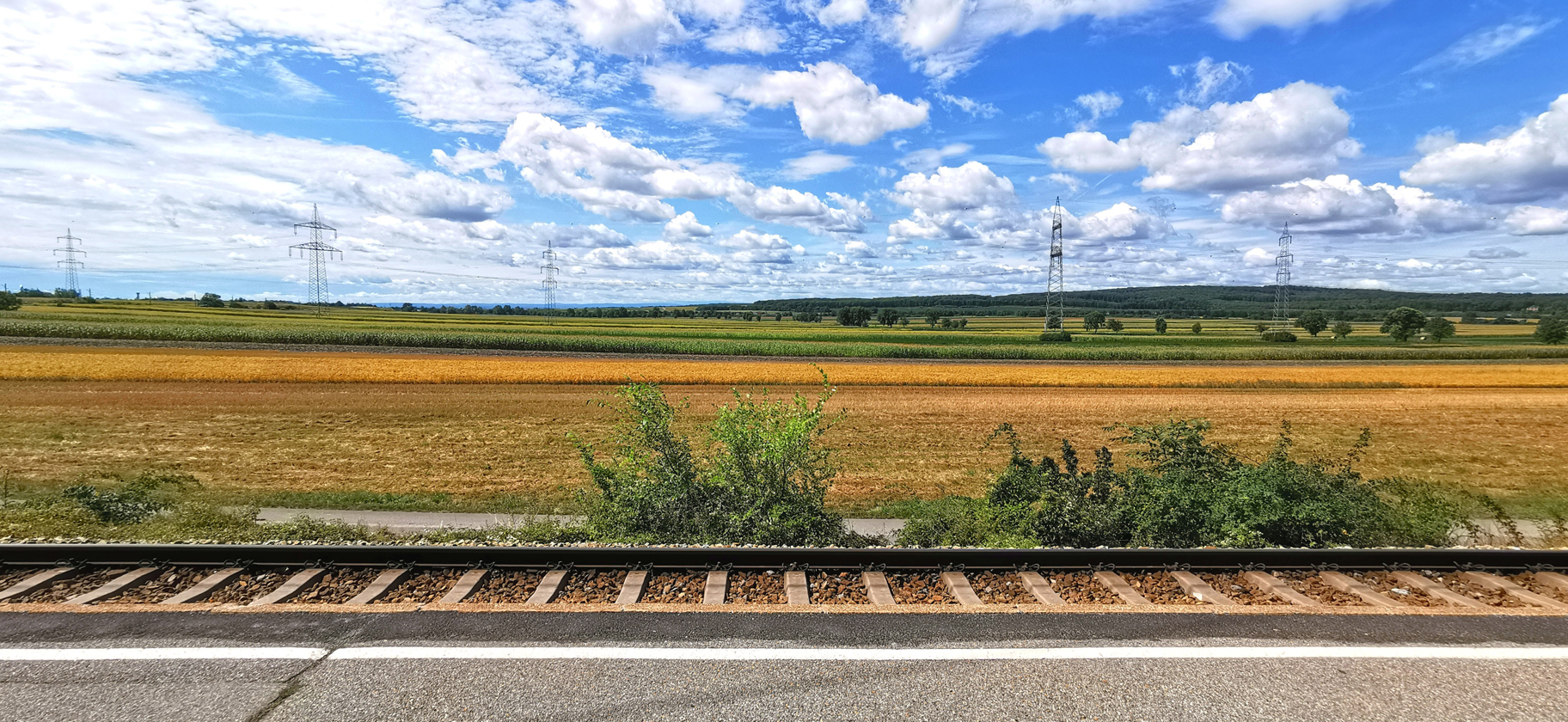
There was a lot of ground to cover between Bratislava and Paris, and little time to make the distance. Responsibilities with my work were swelling and planning the overland route in such a way as to be able to reach Paris and be able to get all of the work done felt like a full-time job.
Slovakia
I am finding it hard to put sentences together in my mother tongue, but the differences between Slovak and Hungarian, despite their close geographical proximity to one another, have me feeling lost and timid for the first time in a long while. Time is against me to solve public transit in Bratislava’s city centre, and needing to get to Petržalka station at the south end of town, I raise my hands in the air and ask if anyone nearby speaks English. A woman dressed in ripped jeans and t-shirt, with tattoos and piercings in every part of her face, and a few gold and missing teeth approaches me and offers to help. There’s a short discussion about bus numbers, changes, and what type of ticket to buy, but eventually she just says, Fuck it! Follow me and I’ll take you where you need to go. There is a ride across town and a small hike through a mall and a parking lot and over a highway, but we arrive at a bus stop where she tells me to take the number 94 bus and ride it for two stops. I thank her but she stays. We continue a casual conversation and she mentions that she works as customer service for the Slovak branch of AT&T and that she’s on her lunch hour.
If you need to get back to work you don’t have to wait with me, I say, but she brushes the offer aside more keen to see that I get on the correct bus. There is kindness everywhere.
From Petržalka the train heads to Parndorf Ort where there is a change. Then it is one stop to Neuseidl am See and I am complacent in my car confident the train will continue to Eisenstadt where I’m set up to spend the day with Kornél and the family. An old man is in a panic asking people where the train is headed. I look over at a young woman who was trying to help him and ask: Is he going to be okay?
He was at the wrong part of the train, she says, so he needs to go to the other side.
Different parts of the train go in different directions? I ask.
Yes.
Does this side go to Eisenstadt?
No.
It was nice meeting you, I say launching myself out of the door and sprinting to the other side of the train. There’s no time to make sure that I’ve collected all of my belongings as I hop into the correct car right as the doors close. The train speeds out of the station as I run through my checklist. Wallet, phone, keys, computer bag, duffle – everything appears to have made it on board with me.
Austria
The train pulls into Eisenstadt and Kornél is there to meet me. Balasz, his eldest, and the family have travelled up from Széged, and Ági has put together a feast capable of feeding a regiment that exceeds more than double our numbers. It is a cold war era apartment complex and Kornél introduces me to the fallout shelter, now overgrown with cobwebs, that was once part of the standard building code in Austria but today seems like a strange relic of the past – somehow, after more than 30 years, no one has found a way to repurpose the space. Péti, one of Kornél’s twins, to whom I bear a striking resemblance, is returning and everyone is desperate that we should meet but I need to head to Vienna. He walks in the door with a smile as I walk out with a smile, like passing by a mirror.
The sun is setting over the Austrian countryside as the train speeds from Müllendorf to Vienna. It’s a late check-in at the Airbnb in Margareten and the walk from the Hauptbahnhof feels like a long one but I need the practice knowing I’ll have to make the walk back here to catch the first train toward Slovenia in a few days. It is mid-summer but I can feel the days starting to get shorter. I have ditched the rolling suitcase for a military-style duffle that I picked up for a couple of bucks in an army surplus store in Szeged that I have slung over my shoulder and for the first time I am beginning to notice the weight as droplets of sweat have run down my arm and onto the bag. I have walked too much, I have eaten too much, and I have drunk too much. The host is out of town so I feel free and like a local in my own apartment. Sleep is more important than supper and I nod off.
Vienna is a well laid out city that is easy to walk but it is all Mozart wigs and an imported seasonal workforce that steals away a lot of the charm that I remember from when I visited more than a decade earlier. I walk into a bar to break up my workday and watch some Premier League games and have a beer. There is no air conditioning and plumes of cigarette smoke fill the air, but at least it is open and they are showing the football matches on the televisions. I get through about 45 minutes of one match before they change the channel over to Rapid Vienna versus Altach which I have considerably less interest in. The beer is tepid in seconds from the heat of the afternoon and I only bought it to have a reason to sit in the bar and watch the matches. A fat, die-hard, Rapid Vienna supporter has lit up a cigar over at the next table and although I can’t deny that the city is beautiful and rich with history, on this occasion I cannot feel it. I head out into the city seeking sustenance. I am in Austria, so I would like something distinctly Austrian, but passing by the restaurants in the city centre feels like being inside a Hanna Barbera cartoon with an endlessly repeating background of the same menu repeated over and over. The alternatives are franchises from America: Starbucks; MacDonalds; Subway; I cannot justify the 40-euro price tag for what might, or might not, be a decent meal. It’s impractical. A kase wurst from a street stall will have to do. There is a stylish open-air market running along a corridor from Margareten to the city centre and I can self-cater. I ask about the fruits and vegetables and am reassured that everything is grown locally, but the quality of the produce does not justify the price. Clouds roll in suddenly as wind whips around the buildings. In seconds the rain pours down in sheets as people clear the streets to find shelter. Lightning crackles overhead lighting up the sky. It is intense, more like a waterfall than rain, but it does not last. Unsure whether the heat or the rain is the culprit I surrender to being perennially damp as I trundle back to the apartment. Exhausted, I draw open the windows to let air in and settle in for the evening. The concrete has been stewing for twelve hours in the August sun and the 20,000 steps that I have taken feel as double. All of my clothes are moist and the air is so thick that they will never dry.
Slovenia
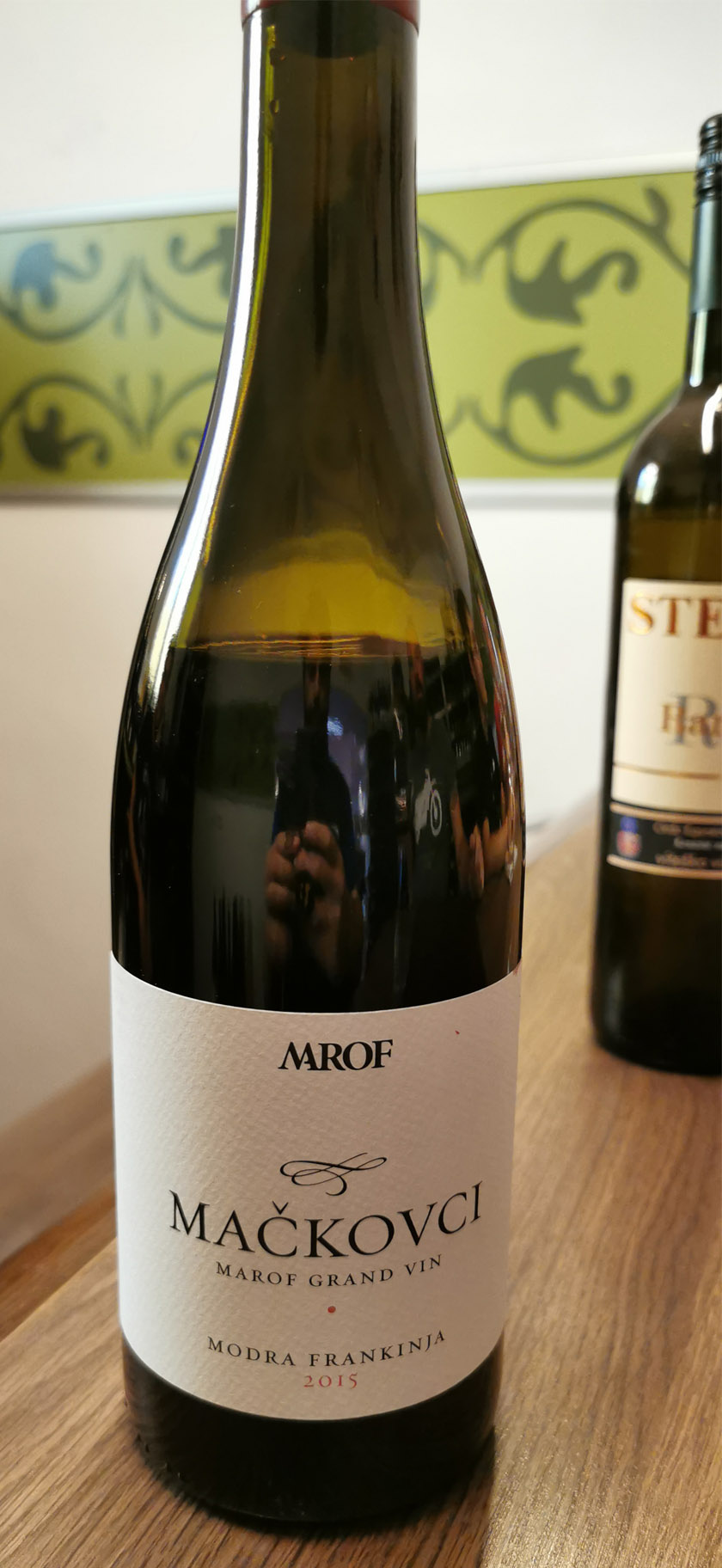 The adrenaline of a new day and a new destination is pumping and, though I have set my alarm, it is not needed. Coffee. Ablutions. I organize my belongings with military-style precision and am off with haste back to the Hauptbahnhof. Vienna to Graz to Spielfeld to Maribor but all the tickets bought with one stop. Ljubljana to meet with Tine and Brina is the goal but the journey is too long and Maribor seems like a good compromise for breaking up the journey. The streets are open. No tour groups. No hawkers. Maribor seems a world apart from Vienna. The sun is just as hot, but the pace of life is slower. There is less ground to cover and no real objectives for the day. Getting one step closer to Paris and not letting my work fall apart seems like a worthy enough goal and I have managed at least that. Until today, Slovenia had remained completely undiscovered and a mystery. There are winding cobbled streets and a pub or two but no sports and no air conditioning force me to move along. There is a modest old church across from the city hall and an old fountain. City life on the weekend is at a standstill and most of the shops in town have closed. All the action is by the river where the hotels and the restaurants are. There’s a wine shop that boasts the oldest wine-producing vine in the world so I stop for a tasting. Slovenia, as a wine-producing region, has flown under the radar daring not to challenge the French, Italian and Spanish. Five euro for a tasting of three wines seems like a fair trade to learn a bit about the wine from the region and the hosts are knowledgeable and talkative. Mackovci is a surprising supple red that sparks my interest. I fetch the attention of the manager. Where I come from, I say, when you do a tasting, if you buy a bottle, the tasting fee is waived. Is it the same case here in Slovenia? She asks what bottle I’m interested in buying and mentions that the bottle retails for 60 euros and I decide that I am satisfied with just the tasting.
The adrenaline of a new day and a new destination is pumping and, though I have set my alarm, it is not needed. Coffee. Ablutions. I organize my belongings with military-style precision and am off with haste back to the Hauptbahnhof. Vienna to Graz to Spielfeld to Maribor but all the tickets bought with one stop. Ljubljana to meet with Tine and Brina is the goal but the journey is too long and Maribor seems like a good compromise for breaking up the journey. The streets are open. No tour groups. No hawkers. Maribor seems a world apart from Vienna. The sun is just as hot, but the pace of life is slower. There is less ground to cover and no real objectives for the day. Getting one step closer to Paris and not letting my work fall apart seems like a worthy enough goal and I have managed at least that. Until today, Slovenia had remained completely undiscovered and a mystery. There are winding cobbled streets and a pub or two but no sports and no air conditioning force me to move along. There is a modest old church across from the city hall and an old fountain. City life on the weekend is at a standstill and most of the shops in town have closed. All the action is by the river where the hotels and the restaurants are. There’s a wine shop that boasts the oldest wine-producing vine in the world so I stop for a tasting. Slovenia, as a wine-producing region, has flown under the radar daring not to challenge the French, Italian and Spanish. Five euro for a tasting of three wines seems like a fair trade to learn a bit about the wine from the region and the hosts are knowledgeable and talkative. Mackovci is a surprising supple red that sparks my interest. I fetch the attention of the manager. Where I come from, I say, when you do a tasting, if you buy a bottle, the tasting fee is waived. Is it the same case here in Slovenia? She asks what bottle I’m interested in buying and mentions that the bottle retails for 60 euros and I decide that I am satisfied with just the tasting.
All the stores are closed so there is no way to self-cater, so if I am going to eat anything today it is at a restaurant. For 10 euro, a plate of grilled veal covered in melted cheese and served with fresh vegetables and Lasko, the local beer, is good value. It is just as hot, but the mood has lightened and, unlike in Vienna where work, cigarette smoke, and suffering, felt like the order of the day, for a moment I look out over the river and in that calm, I am reminded of why I keep the ground moving underneath me. I have sent my emails. Everything is under control. There is no rush here. Across the restaurant I hear a family speaking Hungarian and I remember the forints I am still carrying in my wallet. With no intention of returning to Hungary in the near future this might be my opportunity to exchange them. I use my rudimentary Hungarian to introduce myself and quickly explain, as politely as I can, my intention for interrupting their evening. They are friendly, but hail from Temesvar, in Romania, and have no use for my forints.
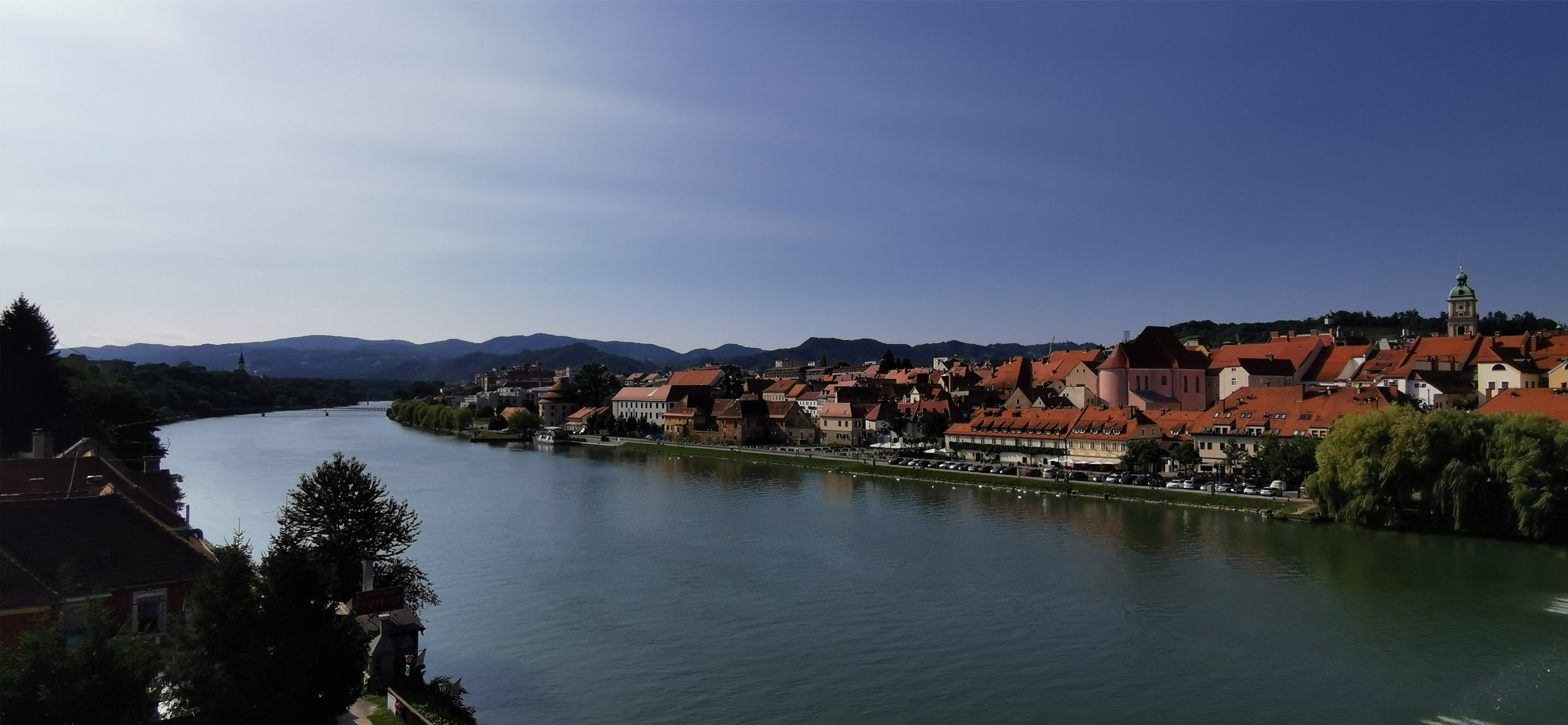
Each new day on the continent finds a way to punish me because this must be the hottest day yet. It is midday as the train pulls into Ljubljana and though it is small for a major city, getting from the station to my accommodation at the south end of town feels like a cruel punishment. I can barely notice how beautiful the old and the new town, that straddle opposite sides of the river, are from the sweat dripping down my forehead and into my eyes. I do not meet with Tine and Brina until tomorrow and there is no time to see Ljubljana today because, travelling two days in a row, work now needs attending to. It is hot and stuffy in the house and my hosts are tough-talking lesbians who like to smoke and who are young and fun and easy to get along with. There is a French couple staying in one of the other rooms who keep to themselves and, by comparison, Sara and Marija see me as the fun guest. I am my most responsible self until night time comes around and my hosts have invited friends over for a poker night with an insignificant 2 euro buy-in that is impossible to say no to. It is only a half dozen hands in when I am dealt a king and a queen and decide to raise the blinds ten times. I am surprised when someone decides to call as I was hoping to get away with just stealing the blinds. He had just hit four eights in the previous hand and had taken a small pot – enough to cover me. An ace comes, along with a 7 and a 2. There is no way he is that lucky so I figure my king and queen were still good, and most likely he would figure I had paired the ace, so I play strong again and again he calls. He must think I am playing with nothing. A jack falls on the turn that makes me a little nervous but it also means I have a shot at a straight. I raise again and he calls. More than half my stack is in there and he keeps making me play. I figure the best-case scenario is I fleece the guy; the worst-case scenario is I get an early bedtime which, for a moment, feels a bit like the best-case scenario since I am exhausted. A nine on the river and I cannot possibly imagine what he has that has kept him in the hand this long but I push everything in and he calls. We show our cards. He called my initial raise with a 5 and a 2 and hit the 2 on the flop and just rolled with it.
I met Tine and Brina a year earlier in Sighnaghi in eastern Georgia. Sighnaghi is a bit of a one-road little town in the hills in Georgia’s wine-producing region and I had found the biggest restaurant in town with the biggest TV I could find and I had cased the joint days earlier making sure everything was going to run smoothly. France was playing Croatia in the World Cup final and I had invested a lot of hours and emotions travelling Russia over the last month that I was not about to miss the final match. That day the weather would alternate between torrential rainfall and sweltering heat and I headed down an hour early to set up a small workstation for myself, stay cool, stay dry, and make sure everything was on schedule. Projects were rendering on my computer when suddenly, twenty minutes before kick-off the cable and the power went out. I panicked. Don’t worry, I was reassured by the staff, It happens all the time. The restaurant powered up again a few minutes before kickoff and my nerves settled. I ordered just about everything on the menu figuring that my being there all day would give me enough time to eat it all. Other diners, with only a passing interest in the game, arrived to eat their supper. I took up most of the restaurant but I was friendly and invited others to join me where there was no room and it did not take long before all the diners at the restaurant followed my lead and felt fully invested in the match. Tine and Brina were on vacation from Slovenia and sitting next to me. They were on their way across Georgia eventually to Batumi and we got to talking and, this evening in Ljubljana, that first meeting was coming full circle.
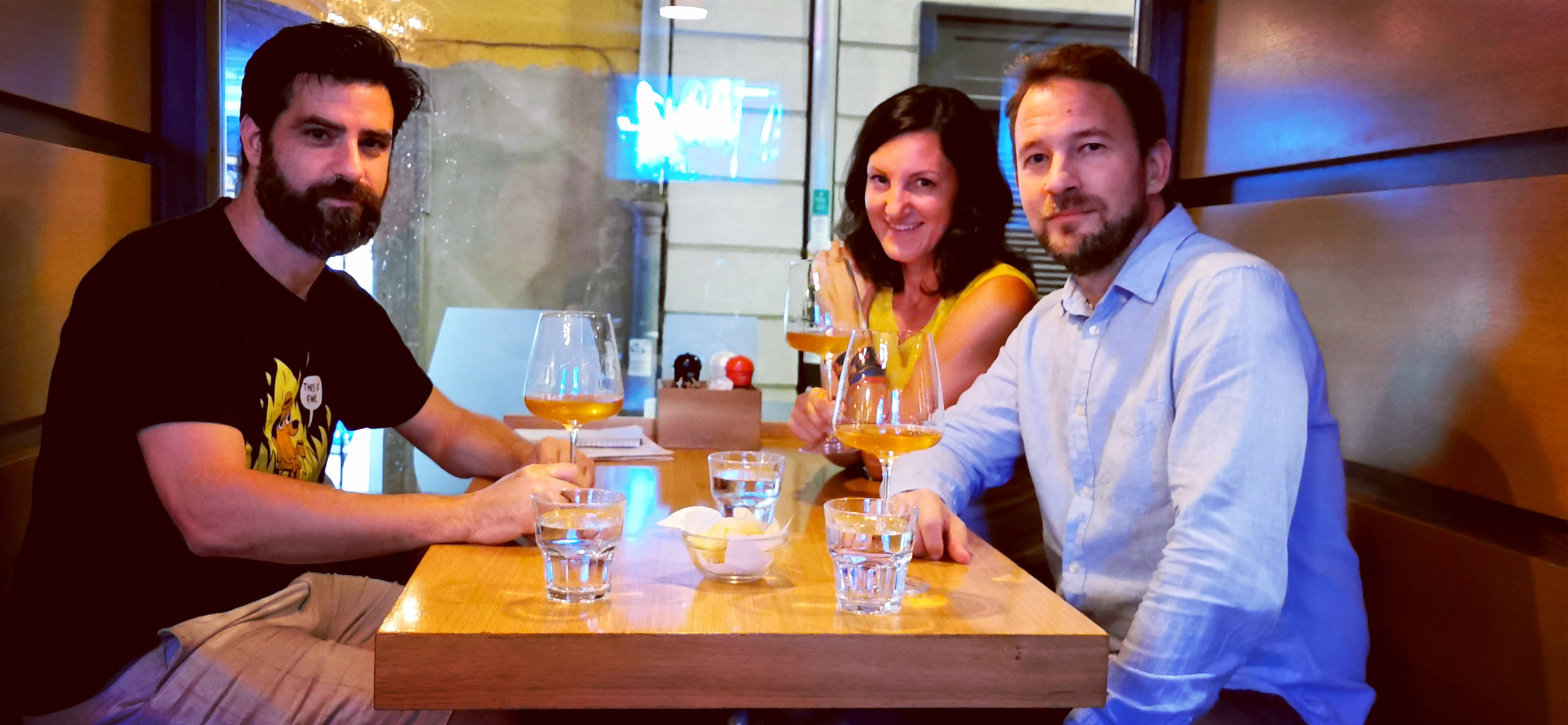 The tapas place they were hoping to take me to is fully booked so we decide on a restaurant called Landerik. It is the longest deliberation over a menu in modern history that frustrates the waiter which, in turn, frustrates my hosts but eventually we are brought food. Tine and Brina, to their credit, in the end, do a great job of setting up a meal that is typical Slovenian dishes made with local products and presented in a modern way. Delicate veal tartare, what I am told was a daring take on kekec (cottage cheese strudel), and hearty beef cheeks with corn polenta, and we follow up the meal with orange wine[i] at a local pub. We talk about life over the last year, my plans for the future, their plans for the future, and what I should get up to while I am in Slovenia. So much to see and do, not enough time in which to do it, and no easy way to do it all.
The tapas place they were hoping to take me to is fully booked so we decide on a restaurant called Landerik. It is the longest deliberation over a menu in modern history that frustrates the waiter which, in turn, frustrates my hosts but eventually we are brought food. Tine and Brina, to their credit, in the end, do a great job of setting up a meal that is typical Slovenian dishes made with local products and presented in a modern way. Delicate veal tartare, what I am told was a daring take on kekec (cottage cheese strudel), and hearty beef cheeks with corn polenta, and we follow up the meal with orange wine[i] at a local pub. We talk about life over the last year, my plans for the future, their plans for the future, and what I should get up to while I am in Slovenia. So much to see and do, not enough time in which to do it, and no easy way to do it all.
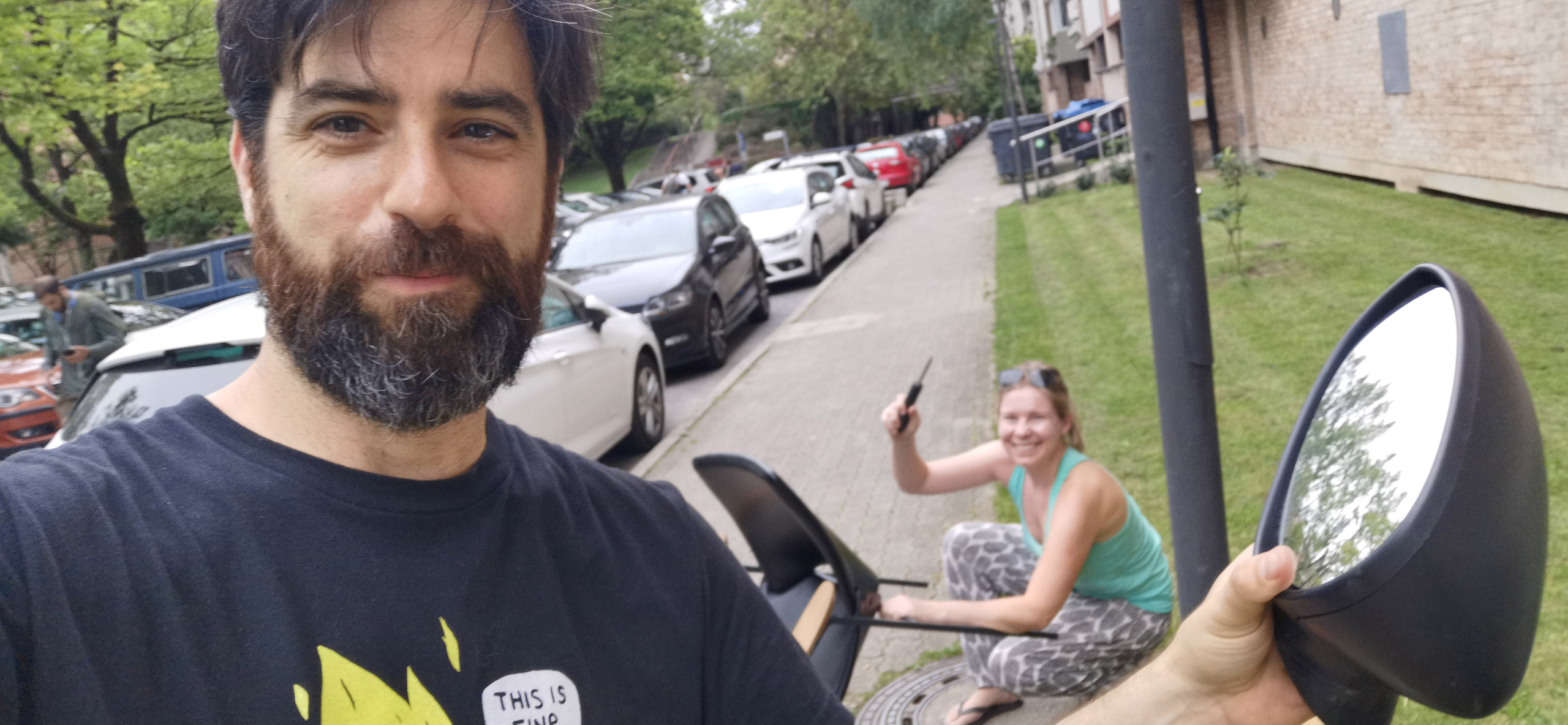 Somehow I get roped into helping Sara put together some chairs she had refurbished for a neighbour. She is collecting a cool 200 euros for the restoration work of which I am not seeing anything. It is tricky work attaching the legs to the seat and involves a lot of contorting oneself around the various parts of the chair and rolling about on the lawn to find the best angle and get enough purchase for the screwdriver to get everything solid and attached. A car drives by and there is the distinctive crunching sound of metal on metal. Someone has driven by and knocked the mirror off of another car – Sara’s car. There are discussions and deals to be made. Surely repairing a side mirror cannot be worth getting insurance companies involved. Still, work on the chairs must carry on unabated and I just have to make peace with the fact that this is what my life is now.
Somehow I get roped into helping Sara put together some chairs she had refurbished for a neighbour. She is collecting a cool 200 euros for the restoration work of which I am not seeing anything. It is tricky work attaching the legs to the seat and involves a lot of contorting oneself around the various parts of the chair and rolling about on the lawn to find the best angle and get enough purchase for the screwdriver to get everything solid and attached. A car drives by and there is the distinctive crunching sound of metal on metal. Someone has driven by and knocked the mirror off of another car – Sara’s car. There are discussions and deals to be made. Surely repairing a side mirror cannot be worth getting insurance companies involved. Still, work on the chairs must carry on unabated and I just have to make peace with the fact that this is what my life is now.
Lake Bohinj is the goal for the day but not before heading to Bled to see what all the fuss is about. There is a dinky train station at one end of town and nowhere to store my heavy bag, so, for the moment, they are coming with me. The hill is steep and carrying my duffle all the way up presents a problem. There is a campground nearby with a restaurant and I ask if I can leave my bag. Whether the man helping me is able to understand any English is uncertain but my duffle gets stored in what appears to be a safe place behind a stack of tables. The trail shoots straight up into the mountain more like climbing a steep set of stairs than a leisurely mountain hike. It is straight up, but it is not far and less than an hour up and the view from Mala Osojnica reminds me why one bothers to make the ascent in the first place. The viewing space is small and many have made the trip, but still, there is time to take a moment, be silent, and breathe it in.
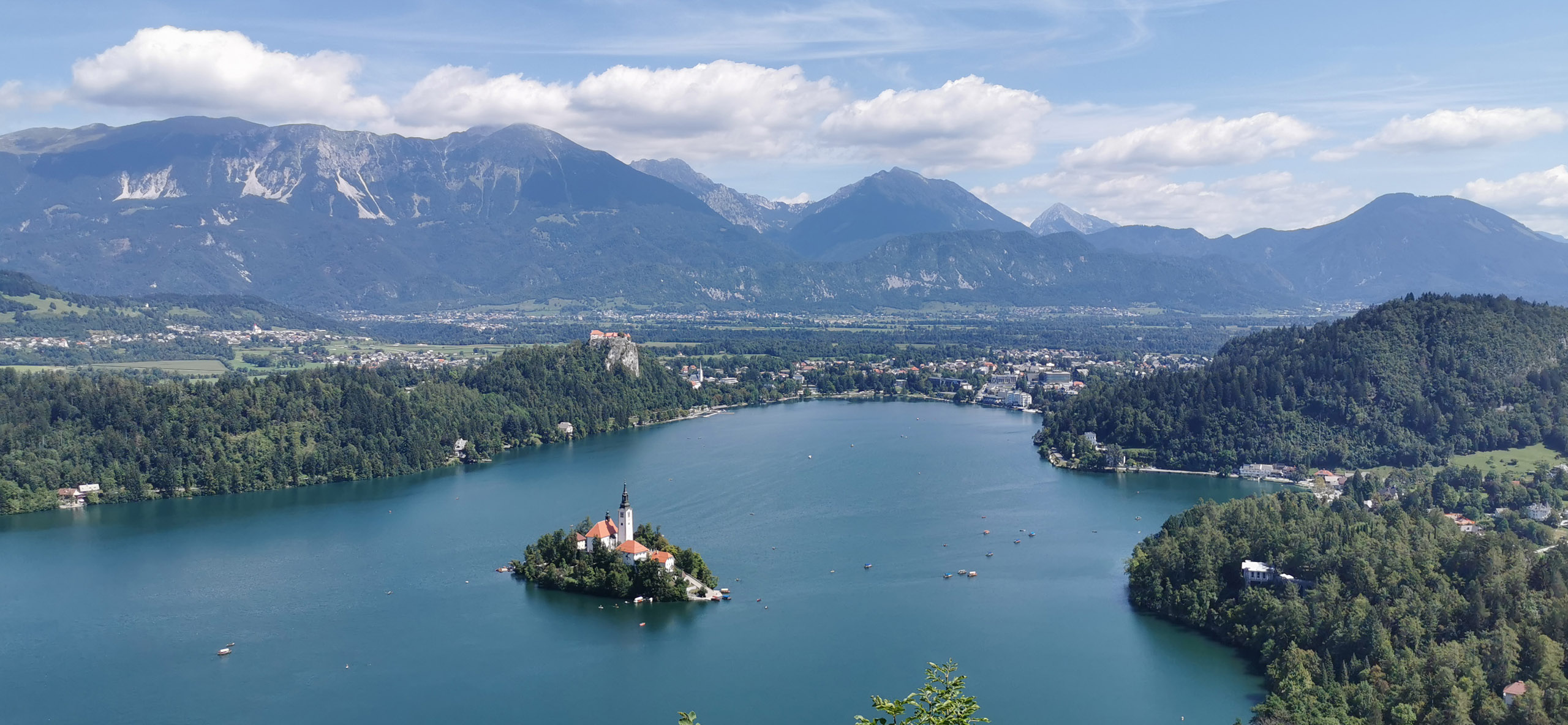
I have a small bite to eat at the restaurant as a way to repay them for looking after my bag before I head back to the train station. I have been waiting a lot longer than I expected. I check the schedule over and over again. The train is late. I pace back and forth on a very empty platform. I check the schedule again. Twenty minutes late? There is a small café by the train station and I inquire about the train and that is when I learn that I have arrived on a holiday and that all of the modes of public transit are reduced. The train will not be around for another hour. I find power and break out my laptop – if I cannot travel, I can at least get some work done. I am deep into one of my projects when three men sit down at the table where I am working. Two of them are German and one of them is a local who is showing them around. They are curious about what I am doing and I explain that I am working while I am waiting for the train. That’s great, so you can work anywhere? One of the Germans ask me. There’s a brief discussion about my job but I’m more curious about them. They are from Berlin where I had visited back in 2003.
How is Berlin these days? I ask. It was an incredible place when I visited, I found it totally fascinating.
One of the Germans takes a moment to reflect on what life would have been like back in 2003 in Berlin and then comes to some conclusions: No, no, it’s totally different now. It’s not the same. Well, it’s not really German anymore. It’s all people like you now. My body instinctively recoils before it realizes that maybe the sentiment is nothing to take offence to. It’s a totally multicultural city now with people from all over the world doing business and things all on their laptops just like I see you now.
The train does finally arrive and now mobs of people have gathered to get on board. The minute the train pulls into the station they rush toward the doors drawing the ire of the people trying to disembark. What is wrong with you people?! A man screams out in frustration. Bodies pile onto one another and in seconds all of the seats are taken. Many are riding all the way to Nova Gorica where they have come from and I am only heading a couple of stops further down the line so I do not need a seat. The sun is beginning to set by the time the train pulls into Bohinjska Bistrica about 5 kilometres from the lake where I am headed. I walk from the train station across town to the bus stop. I check the schedule several times and it seems like, once again, the bus will not arrive for an hour and a half. It is hot and my bag is heavy as the end of the day nears but I know that my legs can likely cover that distance in the amount of time it would take to wait and I contemplate making the journey on foot. I have made longer trips before, and in hotter weather, but I have already hiked up a pretty steep hill and I know that my body is not what it was 20 years ago.
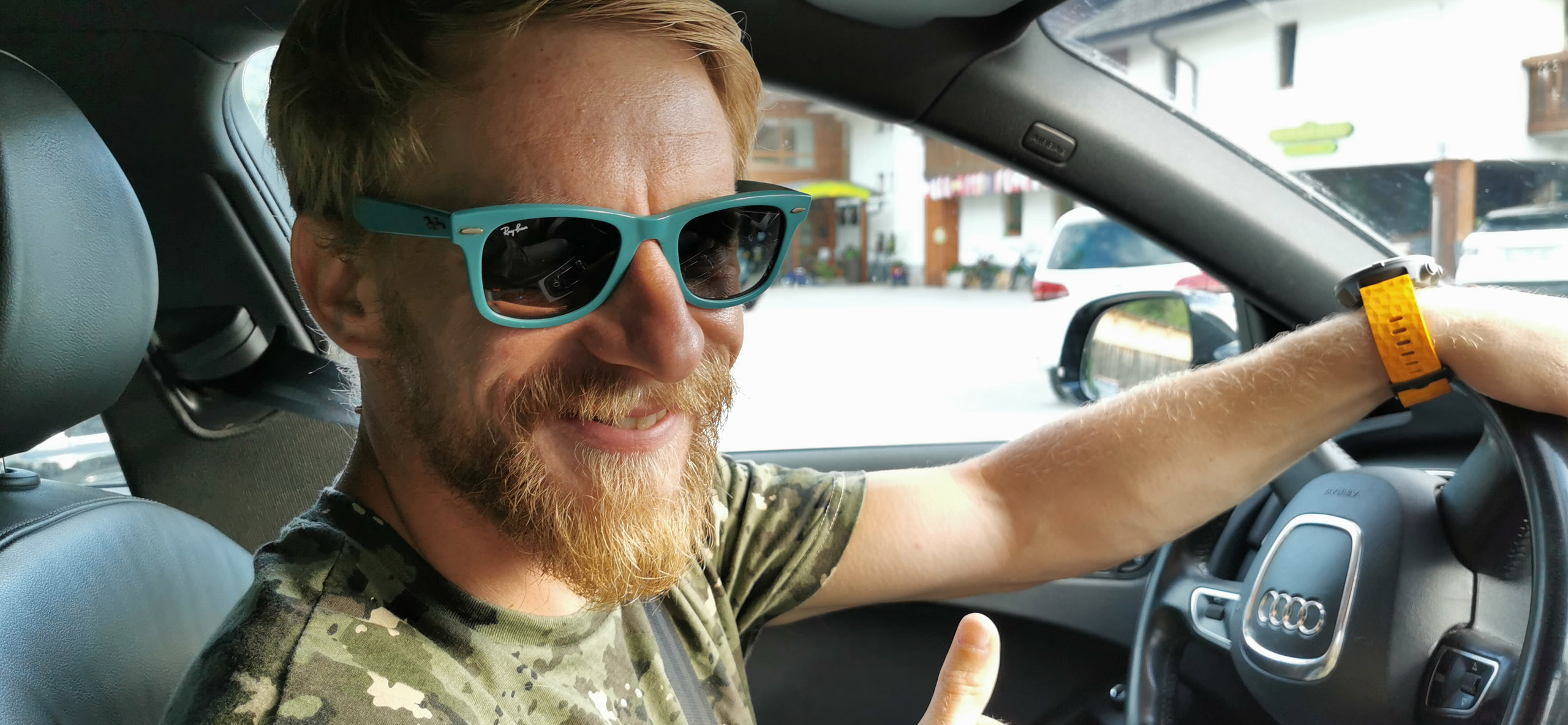
A ride seems nice, but it will be getting dark soon. Fuck it, I’ll walk! A small bridge a mere 50 meters from the bus stop represents the border of the town and I am barely across it when I shoot out my thumb hoping to grab a lift when the first car that passes me decides to stop. Of the many times I have hitched a ride, never have I had so short a wait. Andrej is on his way to Polje to prepare for a guest who will be staying at an accommodation he runs. The hotel in Ribcev Laz, where I am headed, is a couple of kilometres on but to Andrej heading a few kilometres past his destination is no skin off his back and he drops me right at the door. There is kindness everywhere.
My flight from Paris is more than ten days away but I have no time. All I want to do is relax, but planning how to find a moment to relax is stressing me out. I arrange another day in Bohinj and I know I am going to need to do more work but I parcel some time away that I will devote to spending on the lake. I rent a rowboat and discover that I am a terrible rower. I cross to the far side of the lake looking for a small nook where I can swim. There are brief moments of peace, mostly in the rowboat in the dead centre of the lake, where time does not seem to be against me. I take up the oars and just float. The sky is clear and I take out my book to read, even for just a moment, in the total peace and tranquillity of the lake. Huck has managed to learn some important truths of the value of freedom and a human life while floating down the Mississippi River on a raft and, at the same time, I am learning the value of taking a free moment to myself. There is plenty to discover just by taking a moment to pause and think.
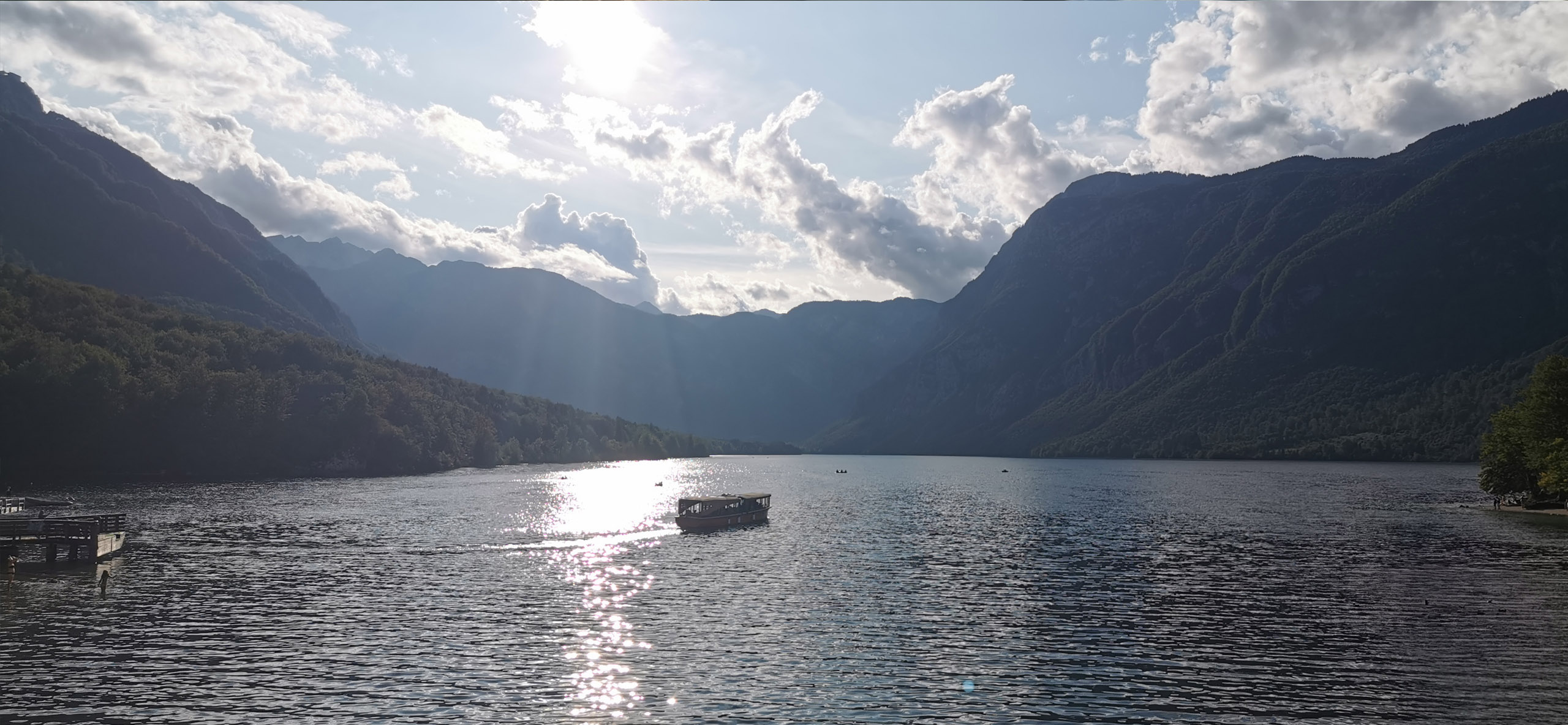
I need a bite to eat and the burger joint in the basement of where I am staying has been wafting up sweet-smelling fumes the entire day. There has been a lineup since lunch and by 9 pm my tummy begins to assert itself. It is a forty-minute wait, but the smell of truffles and lack of other options make the situation seem tolerable. Two teenage boys are seated one table over from me and do not bother to order food. The lineup had grown behind me and it is now 10 pm with people waiting to eat a meal. The two boys just sit there smoking thin cigarettes and swirling Red Bull around in their glasses like it is a fine wine and I cannot help but feel resentful and wonder what it is that brought them here to make that choice. They and I, for a moment, sharing the same small part of the world for wholly different reasons.
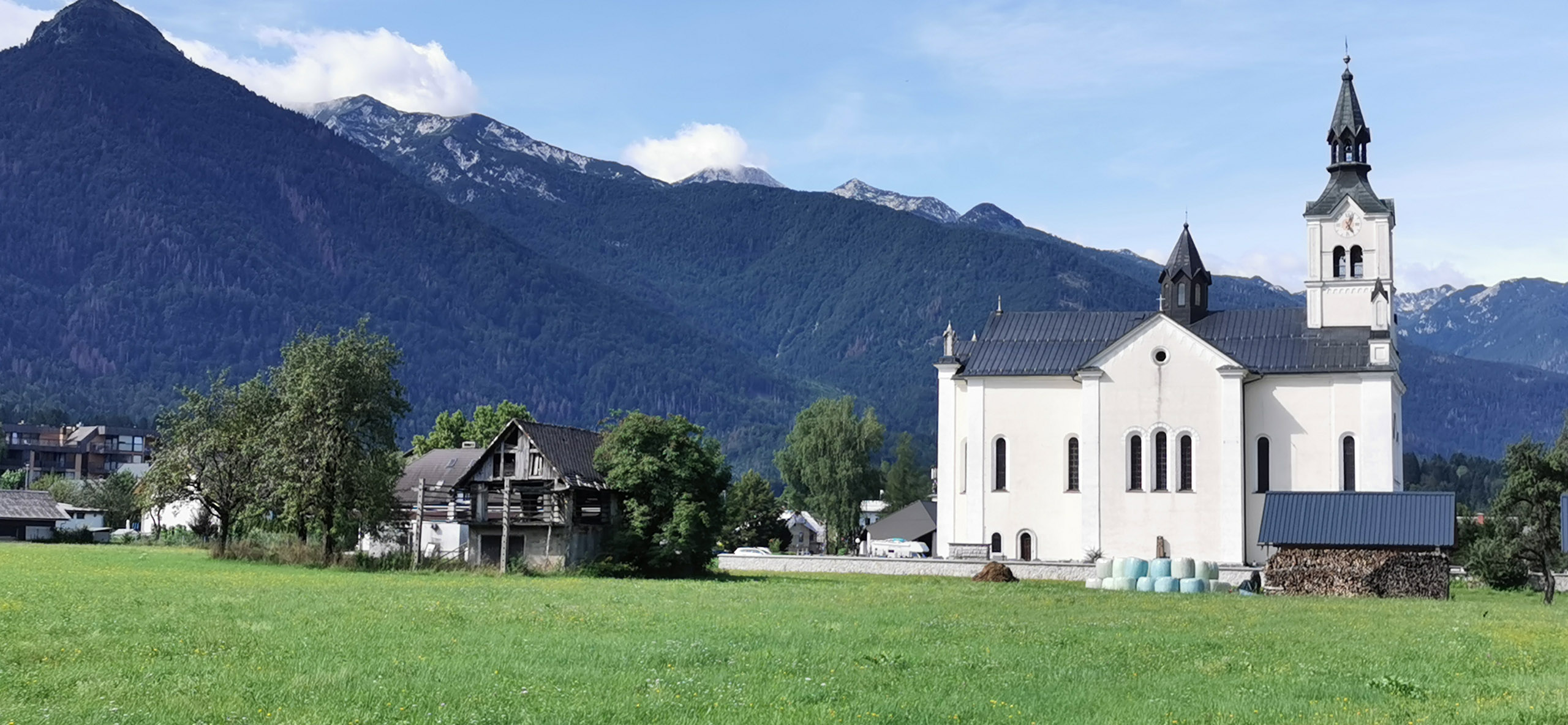 The bus is free from Ribcev Laz back to Bistrica and the wait at the train station is not nearly as frustrating now that it is just another normal workday and all the trains are running on schedule. It is a carefree ride into Nova Gorica and then a short walk over to the Italian side into Old Goritzia where I have booked accommodation. The town is silent. I self-cater and hunker down into my work again because deadlines are deadlines and there is a lot of material I need to clear away even though Mystique, the resident feline, is demanding attention. The tomatoes are well grown here, and in season, and fresh mozzarella sells for about a dollar. Some seafood salad along with that and a bit of csabai sausage that has come all this way with me from Szeged and I have everything I need.
The bus is free from Ribcev Laz back to Bistrica and the wait at the train station is not nearly as frustrating now that it is just another normal workday and all the trains are running on schedule. It is a carefree ride into Nova Gorica and then a short walk over to the Italian side into Old Goritzia where I have booked accommodation. The town is silent. I self-cater and hunker down into my work again because deadlines are deadlines and there is a lot of material I need to clear away even though Mystique, the resident feline, is demanding attention. The tomatoes are well grown here, and in season, and fresh mozzarella sells for about a dollar. Some seafood salad along with that and a bit of csabai sausage that has come all this way with me from Szeged and I have everything I need.
Italy
Goritzia feels like a ghost town. Locals have left to go touring and no one has come here for tourism. The heat is punishing but I make a concerted effort to cover as much ground as I can in the hope of finding a nice trattoria to have a good local meal. The streets are almost empty but still, my ears pick up the faint whispers of Hungarian. A family is walking down the street in the opposite direction as me and then it becomes clear and I remember the forints in my wallet. I say hello and explain who I am. They have travelled here on holiday from Szeged – so there are, in fact, tourists in Goritzia. We both do a quick calculation, but then a deal is struck and I trade my leftover 2000 forints for 10 euros. There are handshakes and big smiles as we both go on our way.
The kind of restaurant I am looking for is either far away, or closed, so I decide on pizza at the restaurant across the street from where I am staying. I just want something simple and it costs 7 euros. It is fine, but when the bill comes I am charged 11 euros – two euros for a glass of water and two more euros just to sit there. Italian food is divine, but eating out in Italy is a pain in the ass.
Verona would be charming if Shakespeare had never written a play that is set there. Crowds of tourists, like a phalanx, block passage through the narrow streets, climbing on top of each other along Via Cappello hoping to snap a picture of Juliette’s house. I need to cover as much ground as I can and find a café that promises an internet with more robust speeds than I am getting at my accommodation. I have an eye on every menu because I am still looking for that elusive, perfect, pasta experience. I find a quiet spot by the Garibaldi bridge and make sure I upload all of my files. Though I am only there to profit from their internet, for good measure I support the business and take in a cappuccino and a panini. An old man interrupts me while I am working. He is gruff, but he is wearing a smile, and I do not understand what he is saying. Do you speak English? I ask. He nods a no. Est-ce que tu parles Francais? I ask and he nods yes. He is attracted to my computer and its apple insignia and it initiates a discussion about Alan Turing.
My deadlines look like they will collapse in upon themselves and the stops between here and Paris, along with my sense of well-being will take the fall. There just are not enough hours in a day. Carefully managing every minute, I find enough time to get out into the city because I do need to eat to keep the internal motor going. Every menu in front of every restaurant seems the same and a meal in Verona is either a 15-euro gamble or a 50 euro gamble – and if I am gambling I can only justify the 15 euros – but it turns out to be the most disappointing dining experience of my life. Pasta that had been boiled probably days ago, crispy and dry in parts, with a lazily ladled spoonful of tasteless ragout allegedly with wild boar meat. The Barolo might be fine, but the meal is so poor that the wine cannot save it. Italian food is divine, but eating out in Italy is a pain in the ass.
I leave the restaurant disheartened but I remember a little pizza place by the Ponte di Castelvecchio that had delicious looking panzerottis in the window. Totally unsatisfied with my pasta meal I figure it is what I need. Davide is friendly and happy to chit chat and because his English is strong I feel the need to tell him about my failed dining experience. Ah, you know, he says, that’s Verona. You need to know the right places. He asks me what I want but I have had to make a thousand decisions today already that I am suffering from decision fatigue. I tell him I would like a panzerotti but when he asks which variety I ask for his recommendation. Do you like spicy? He asks. When I mention that I do he says, I have just the thing for you. He then goes on to explain why his spicy panzerottis are special pointing to a tray of peppers that he has been preparing. These are peppers that my family grows right here in Verona. He lets me try one.
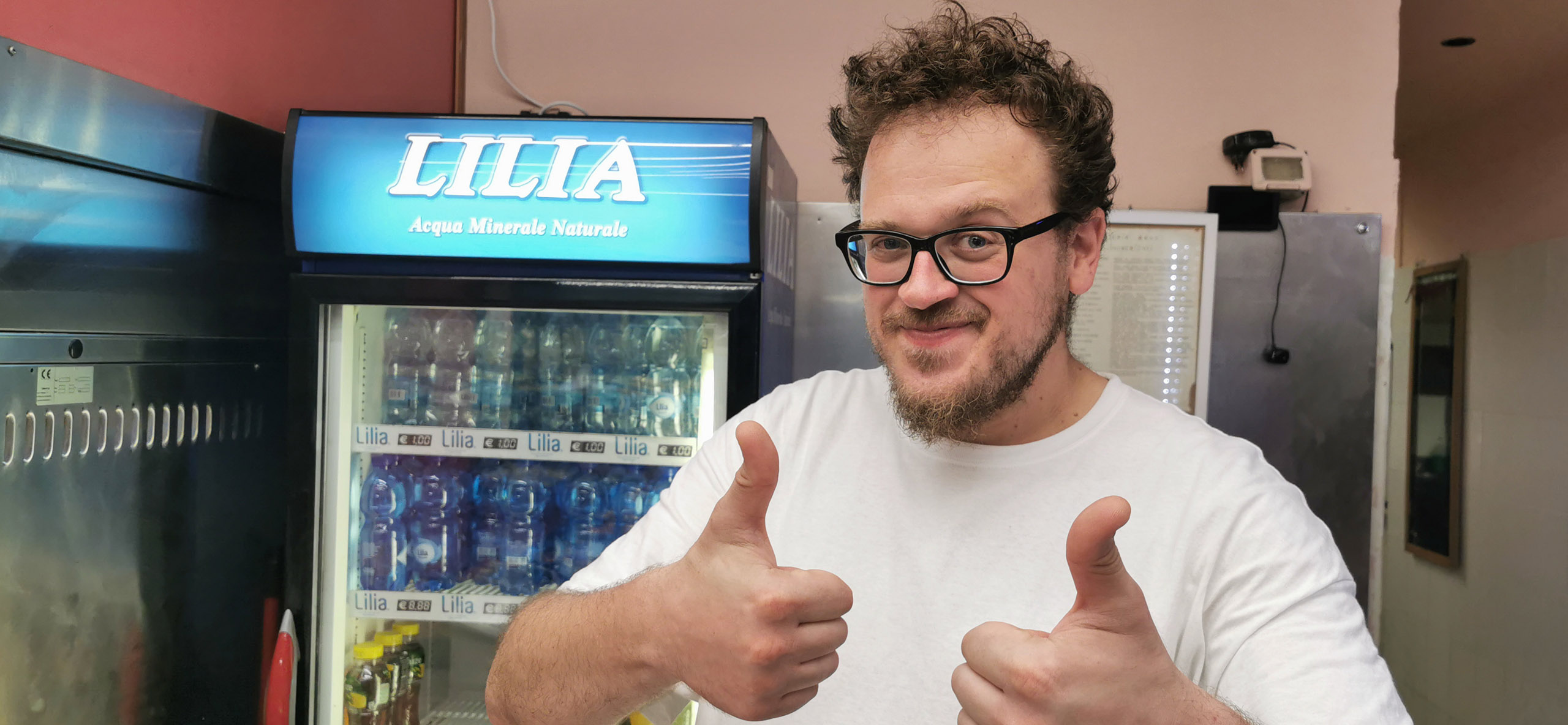
You get the flavour first, then the heat comes in soft and smooth. The shop has been in the family for over 20 years and just this small interaction has saved my experience of the city. I hand over a 5-euro note and he hands me back a 2-euro coin.
But the panzerotti costs four euros, I protest.
Keep it, he says, so that you forget about this terrible meal you had and remember the good parts of Verona. There is kindness everywhere.
The goal for the day is Turin but Milan is in the way and deserves a few hours of my time. There is an elderly man sitting next to me on the train who says he is a catholic priest from Eritrea who has been living in Italy for 30 years. Sitting across from him is a young woman who they tell me is a friend and “one of his flock”. I had been surprised by the visible signs of Italy’s history of colonialism ever since I reached Goritzia, but now here are two people who are happy to spend a few hours on a train chit-chatting with me about Abyssinia, Italy’s occupation, Ethiopian independence and Eritrea’s split from Ethiopia and how it all ties together.
I have no forecasted plans to ever return to this part of the world so, for all I know, this may be my only chance to see anything of Milan. It is too hot and I have too much work that I need to attend to but I disembark from the train anyway and drop off my bag which seems to break their automated system and my ticket is written on a slip of paper. Just make sure you ask for Antonio when you return to pick up your bag, I am told. It is 2 kilometres from the station into the centre of town alone, then a few more out to Castello Sforzesco, and a few more out to Isola and La Fontana, and then back to the train. By the time I get to my accommodation in Turin, I have covered a solid 20 kilometres. It is right back to work but my body is feeling fragile after covering so much ground and it needs food. Everything is closed. Like Goritzia, most of the people have left to tour Europe, and few have come to visit, so most of the businesses in the area have closed down. Elisabetta lets me make myself at home. She too is leaving on holiday so, for at least a day, I will have the whole apartment to myself. She has some local spirits on the shelves. They are in bottles without labels that give them away as homemade and she is kind enough to share. One is sweet and made from juniper berries, like sweet gin, called Genepy, which is native to the region of Piedmont. The other is an herbal liqueur from Sardinia called Mirto. My muscles relax a bit and I nod off early. Terror strikes in the middle of the night when I leave the room to pee. There is a mannequin in the hallway that I mistake for a real person, the sight of which frightens me awake, and there is no getting back to sleep.
I need to get out early to catch the bus to Lyon with my accommodation still in doubt. I have put in requests to 5 different places, all of them denied. Raphael’s place seems like the last available option in my price range. It is not an ideal spot, but it solves my immediate problem of where to stay.
France
No I don’t have wi-fi, he says. It’s written in the listing like that.
I can tough it out for 2 nights if I must, but we find a way to tether my computer to his phone. I have unlimited so it’s fine, he says. It is not ideal, but at least I can send and receive files while he is around. Time to get to work.
I am almost there. Petrzalka station in Bratislava seems so far away now. Being able to communicate in a language I understand is a relief, even if all of my stamina is wiped out after an hour or so in the summer sun. Lyon is not an easy place to walk so I need fuel. It is a steak tartare lunch at Les Halles Paul Bocuse before a stroll through Tête d’Or and then up the hill to Boucle, back down to the Saône and then up again into Old Lugdunum. By the time I get through the centre of town heading toward Confluence and over to St. Michel, I am like a crumpled piece of used tissue. I describe to Raphael my day and the ground that I covered. You Canadians, you are crazy I think, he says. Come with us. Some friends and I will go to a restaurant for Chinese food. You must be hungry.
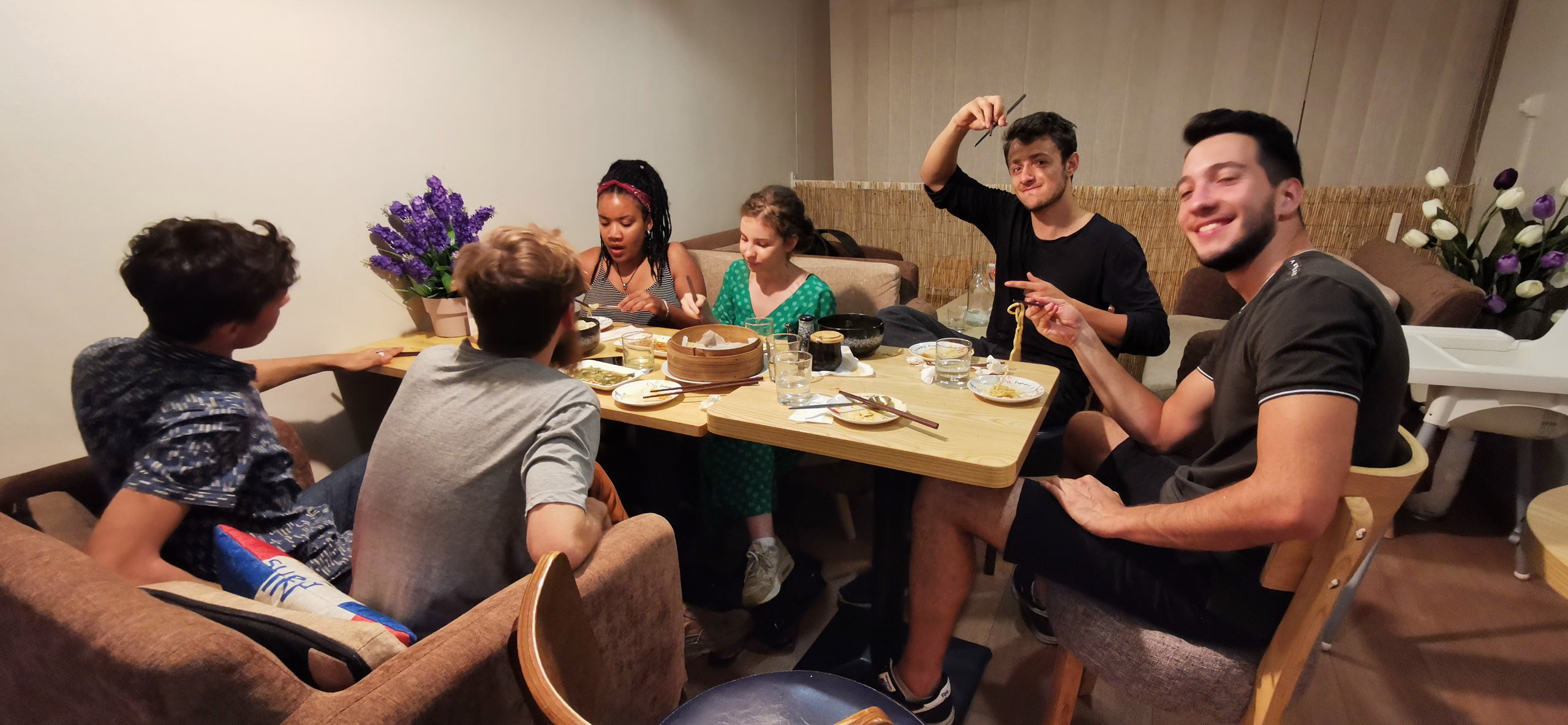 It is a quaint local place and Raphael and myself and his friends Félix, Carolie, Noémi, Alexandre, and Matisse have the whole top floor to ourselves. Raphael takes the helm and orders round after round of plates for everyone to share. Half of the company are vegetarians and there is little on the menu to cater to them. They have delicate palettes too and are not interested in the food. Most of the food finds its way to one end of the table where Raphael, Matisse and myself are sitting. The three of us discuss the food while the others are deep into conversations about the work of Jean-Jacques Rousseau and Pierre-Joseph Proudhon. I think this is the most French thing I’ve ever witnessed, I say to Raphael.
It is a quaint local place and Raphael and myself and his friends Félix, Carolie, Noémi, Alexandre, and Matisse have the whole top floor to ourselves. Raphael takes the helm and orders round after round of plates for everyone to share. Half of the company are vegetarians and there is little on the menu to cater to them. They have delicate palettes too and are not interested in the food. Most of the food finds its way to one end of the table where Raphael, Matisse and myself are sitting. The three of us discuss the food while the others are deep into conversations about the work of Jean-Jacques Rousseau and Pierre-Joseph Proudhon. I think this is the most French thing I’ve ever witnessed, I say to Raphael.
What do you mean? he asks.
Four French university students gathered in a ramshackle Chinese restaurant and sitting on sofas discussing French philosophy and the social contract. Is this typical?
Raphael can’t help but giggle: I don’t think it’s very typical for France these days, but it is pretty typical wherever Félix goes. It’s a passion for him.
Up early again and out the door with haste to catch the TGV for the last leg of this journey. I can barely feel my legs but they manage to put one in front of the other. The work is a mountain and parts of me think it cannot all get done. The TGV is expensive but fast, and the next thing I know I am in Paris. I overhear the clerk in the lobby discussing with an American woman how people were complaining that the air conditioning was not working. I had made it this far, these two nights in Paris were supposed to be my respite from the heat. The American woman is in a panic over how this could have happened. She and the clerk, whose English is rudimentary at best, have difficulty communicating and it only makes the American woman more upset. I offer to assist in any way that I can. There is a couple from Uruguay also checking in and they don’t speak French or English and the clerk speaks no Spanish. Again I offer to help in any way that I can. At this point, the clerk, overwhelmed by all of the demands has taken quite a shine to me. She looks at her map of the rooms in the hotel. What can we do? she mutters to herself. Yes! I can put you on the top floor. Last reports were that the air conditioning was working. My patience and willingness to assist have been rewarded.
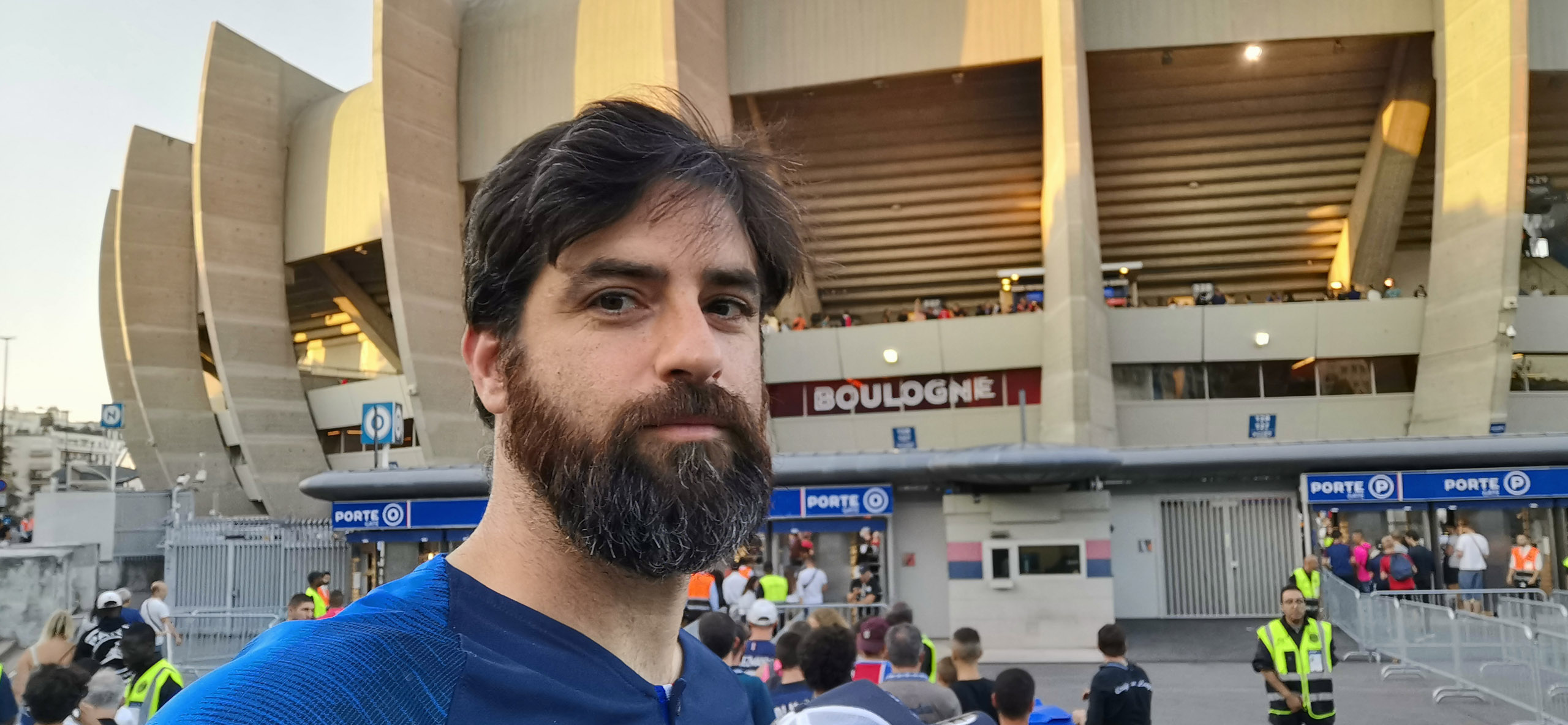 Paris St. Germain is playing Toulouse at the Parc-des-Princes and I can’t say no to the 40-euro ticket. The Uruguayans are big football fans so we head out together and make football friends along the way. He has pictures of every stadium they visit on every stop they make as they travel through Europe, Yo visito los estadios y ella me deja comprarle las cosas bonitas. Even with Neymar out of the lineup, and Cavani and Mbappé both getting injured, Toulouse aren’t able to muster much opposition and are blown away 4-0 to the delight of the home fans. The Uruguayans had gone in large part to see Cavani who lasted only nine minutes before limping off.
Paris St. Germain is playing Toulouse at the Parc-des-Princes and I can’t say no to the 40-euro ticket. The Uruguayans are big football fans so we head out together and make football friends along the way. He has pictures of every stadium they visit on every stop they make as they travel through Europe, Yo visito los estadios y ella me deja comprarle las cosas bonitas. Even with Neymar out of the lineup, and Cavani and Mbappé both getting injured, Toulouse aren’t able to muster much opposition and are blown away 4-0 to the delight of the home fans. The Uruguayans had gone in large part to see Cavani who lasted only nine minutes before limping off.
It is my last day after three months in Europe and I promised myself I would just take it easy and only do the things I like most about Paris. Unfortunately, one of those things is Kouign-Amman, and I once thought they sold them at every patisserie in the city, but as it turned out they are a bit tricky to find and it had me traipsing all over from Montparnasse to the Marais. I had had a mind to sit and take a quiet moment in the Jardin du Luxembourg, but it was too hot – even Paris loses its lustre when it is on fire.
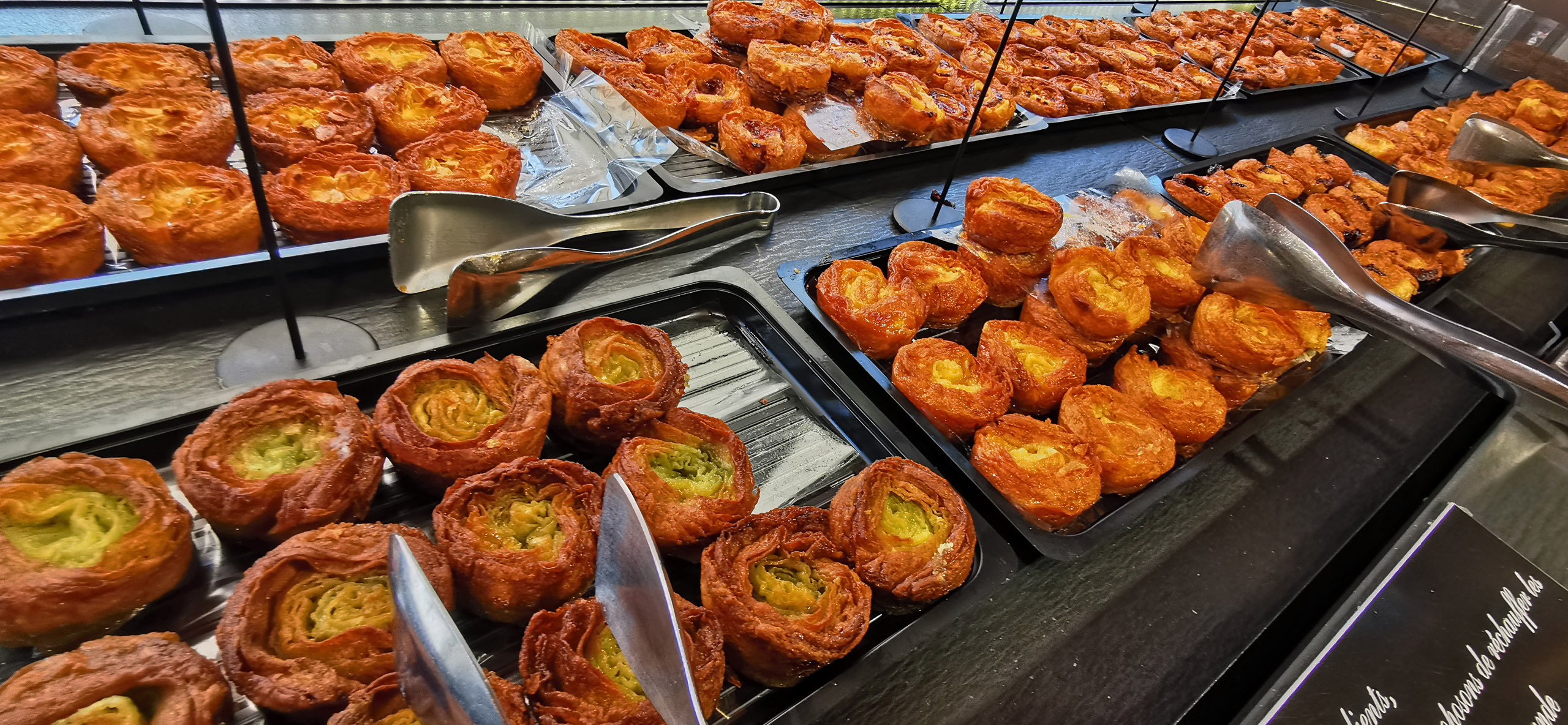
I cannot believe I am leaving. I rationalize things in a way where returning to Canada will give me a chance to recharge my batteries. But somehow I feel like it is my constantly being in motion that keeps my batteries charged in the first place. One last ride on the RER out to Charles de Gaulle and then hop on a plane and it is back to the old reality. I remind myself that it is only for two weeks and worth it to attend the wedding in Kelowna. But the truth of the matter is, that since leaving Vancouver 3 months earlier, being on the move, as exhausting as it is, feels normal. For a moment I wonder what it will be like to not have that stress and instead to have everything in my life have its own particular spot – everything laid out and orderly. On the journey, there had been late nights where I laid on a bed shattered and broken, and made calls to the chief operations officer of one of the companies I do work for where I explained how it could not get done and how it was all going to collapse in on itself. But, of course, it didn’t. In the three months since leaving Vancouver, I had taken stock of everything in my life and reduced it all down to only the things that could sustain this new way of life. There are a lot of little things we accumulate over time that seem important, but they only clutter the things that are essential. From Hartfield to Alness, to Glasgow and Belfast, from Dublin to Budapest, and Bratislava to Paris it was time to say goodbye to Europe for a short while. It was too hard to say, at this point, exactly where home was, but the plane would take me back to Vancouver which was now just somewhere. I would be returning to Paris in two weeks, which was also just somewhere. Home, I supposed, was in those quiet moments in a strange bed, knowing that tomorrow I would be off to somewhere I had never been.
[i] Orange wine, similar to rosé, is made from white wine grapes with the juice allowed to stay in contact with the skins which gives it its distinctive colour. It actually has the reputation of being the most traditional of all wine styles and is a big thing in Slovenia.